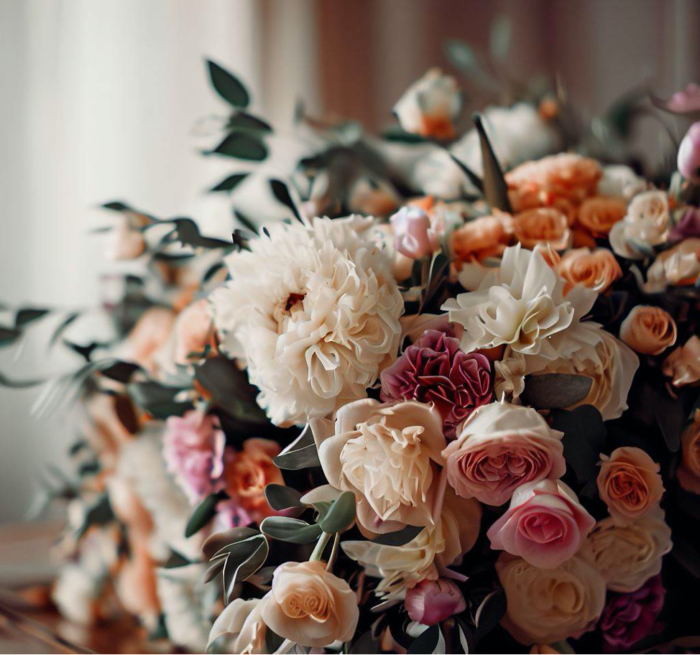Petals and Passions: A Timeless Affair
The practice of gifting flowers is as ancient as the hills. Imagine walking into a room and being greeted by the sight of a beautiful bouquet of flowers; your senses are instantly assaulted by the vibrant colors and the sweet fragrance wafting through the air. There’s something about flowers that resonates with our very souls. From the court of Cleopatra in ancient Egypt to the modern-day doorstep surprises, flowers have been an integral part of human expression. But what is it about these delicate, ephemeral blossoms that make them such powerful symbols of our emotions? In this article, we unravel the tapestry of the human psyche and explore the deep-rooted reasons behind why we gift flowers and send them via nature’s flowers Miami. From the significance of colors and fragrances to the strengthening of bonds, let’s embark on a journey through the petals of history and the passions of the heart.
 The Colorful Tapestry of Human Emotion
The Colorful Tapestry of Human Emotion
Flowers are universally adored for their delicate beauty and enchanting fragrances. They have been a constant presence throughout human history, often serving as symbols for various emotions and occasions. But have you ever paused to wonder why this is the case? There is a fascinating psychological aspect behind why we gift flowers to convey our emotions.
First, let’s talk about color. Colors have an astonishing effect on our mood. For example, it’s been discovered that people surrounded by blue walls feel calmer, while those surrounded by yellow walls feel more energetic. Similarly, flowers, with their vivid colors, can evoke powerful emotions. For instance, in the 15th century, the red rose was adopted as a symbol of the House of Lancaster during the English civil wars known as the Wars of the Roses. Since then, the red rose has been associated with love and passion.
Furthermore, flowers have often been associated with various myths and legends. According to Greek mythology, the anemone flower sprang from the tears of Aphrodite as she mourned the death of her lover, Adonis. Such stories have been passed down through generations, adding emotional depth to these delicate creations of nature.
Scents and Sensibility: The Fragrance Factor
Let’s take a journey into the world of fragrances. Have you ever caught a whiff of a familiar scent and been transported back in time to a cherished memory? This is because our sense of smell is directly linked to the hippocampus and amygdala, two brain structures heavily involved in emotions and memories.
Now, picture this: it’s the 17th century, and you are at the court of Louis XIV, famously known as the Sun King. His palace at Versailles is filled with the intoxicating aroma of thousands of flowers, as Louis XIV adored them to the extent that he required new floral arrangements every day. He understood the impact a fragrance could have on the ambiance and the mood of the people around.
Similarly, when we gift flowers, the scent plays a crucial role in how they are received. Lavender, for instance, is known for its calming properties. It has been used for centuries in aromatherapy to relieve stress and anxiety. On the other hand, the invigorating scent of jasmine is believed to have antidepressant properties. Gifting a bouquet that appeals not just to the eyes, but also to the sense of smell, can profoundly impact the emotions of the receiver.
Blooms and Bonds: Strengthening Connections
Flowers are not just visually pleasing and beautifully fragrant; they are also tokens of the bonds that connect us. A fascinating study conducted by researchers at Rutgers University found that gifting flowers creates instant happiness and significantly affects the mood positively in the long term. They are almost like catalysts for happiness.
Let’s time travel again. Imagine being in ancient Rome during one of their enormous festivals. Flowers were used extensively, not just for decoration but as adornments to signify bonds between families and friends.
Fast forward to modern times. When someone brings flowers to a sick loved one in the hospital, it’s not just a bouquet; it’s a symbol of the bond they share, a message of hope and healing.
Flowers are also often given in times of achievements and celebrations, like graduations, promotions, or birthdays. They serve as an acknowledgment of the hard work and an emblem of the pride and joy that the giver shares with the recipient.
The Everlasting Beauty of a Simple Gesture
Gifting flowers is a tradition as old as time. Through vibrant colors, they paint the canvas of our emotions. Through intoxicating scents, they soothe our spirits. And through silent language, they strengthen the bonds we share with others. They are, in essence, a mirror reflecting the very best of what it means to be human. Next time you gift flowers, remember that you are not just giving a bouquet but a piece of your heart, a shared joy, and an unspoken bond that transcends time.
